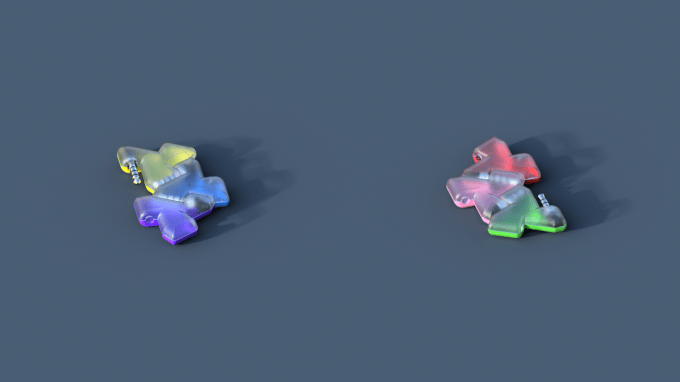MIT PhD Lyssa Neel is using socializing and accessorizing to get get girls interested in programming. Neel’s invention, Linkitz, is a wearable electronic toy that allows kids to rearrange, take apart and snap together electronic blocks that blink and buzz to change their behavior. This teaches them programming in a fun way, says Neel.
Both boys and girls can play with Linkitz, but Neel, who was the 10th woman to earn a PhD in computer science at MIT and fell in love with computer programming in the sixth grade, says she was inspired by her own three daughters to design the product.
“I bought them ‘engineering toys’ when they were in elementary school, but many of them devolve into solitary building activities, which is not the way my girls wanted to play. They were very social and very interested in friendship and doing things with friends. So I decided to try to start with things that my girls liked to do, and add technology into those games,” Neel told me in an email. “I’m hoping to hold [young girls’] interest as they move to middle school, when lots of girls start to say they think math and science are boring.”
The Linkitz team, which, in addition to Neel, includes co-founders Drew Macrae and Chris Wallace, recently won the 2014 N100 Startup Competition in Coburg, Ontario, Canada. The winnings included a trip to Shenzen, China, for a HAXLR8R program where the Linkitz team is currently learning about product manufacturing in order to make the toys ready for mass production. Linkits also received a $100,000 early-stage investment funding from Northumberland CFDC to finalize, test and market their product.
Linkitz plans to set up headquarters in Coburg and is already working with a team of local engineers there to create the toy prototype. Neel says she hopes to put the first prototypes in little hands for testing soon.

“Wearables are the new black, and kids want their own. Linkitz makes smart and modular wearable toys that blink and buzz and will help kids learn programming too,” explains Macrae.
The N100 is an annual startup competition led by Northumberland CFDC. Startups compete for $100,000 in early-stage investment capital. Last year’s winner, Ubi, the “Ubiquitous Computer” went on to secure $635,000 in angel funding.
